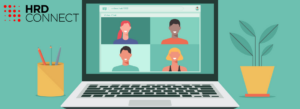Creating a resilient and engaged workforce
- 5 Min Read
Resilience will be the defining characteristic of the successful post-pandemic workplace. But engineering resilience relies on the cultivation of total wellbeing. How can HR leaders enable this in their dispersed workforces?
- Author: Nick McClelland
- Date published: Jun 25, 2020
- Categories

With physical, mental, financial and social health being impacted by coronavirus, it’s essential that employers look at how they can motivate employees to support themselves and build the resilience needed for the coming months.
Resilience – our ability to stay healthy under pressure – is dependent on how well we manage our emotions (mental health), how well we’re eating, exercising and sleeping (physical health), the quality of our interactions with others (social health), and our confidence in our ability to provide for ourselves and our loved ones (financial health).
Unfortunately, with different people being impacted in different ways, there is no single solution to the challenges people are now facing. Different personalities will have been affected in different ways.
Introverted personality types and those already accustomed to remote working might actually welcome the opportunity to live a better lifestyle. Conversely, extroverts are more likely to be struggling with feelings of loneliness and social isolation, which will in turn impact their motivation to maintain a healthy lifestyle.
Similarly, while ‘conscientious’ personality types might have already stashed away the recommended three months’ salary as a financial buffer in case of times of need, this may not be the case for many others, causing them to experience greater feelings of financial anxiety as we enter into recession.
In addition to a lack of insight as to what challenges are affecting each individual, another challenge now faced by employers is finding the right way to tailor and communicate the support they have in place.
Technology is a great enabler for addressing both of these problems. Digital wellbeing solutions not only have the power to capture what employees want and tailor information to each individual, but also reduce costs while boosting engagement.
Ondo, a digital workplace wellbeing app, which Mercer launched last week, utilities technology to not only connect individuals to the wellbeing support provided by their employer in a highly personalized way, but also support one another other through the use of a ‘check in with a colleague’ challenge, group wellness workshops and organizational fitness events.
The app also allows people to post comments, pictures and likes, to create wellness communities that can proactively support each other, even whilst having to work remotely.
Instead of just looking at physical, emotional, social or mental health one at a time, Ondo also suggests ways of working on all these elements at the same time. Users are connected with colleagues who have similar interests, so that – should they wish – they can develop physical wellbeing goals in a way that also supports their social wellbeing.
Communications about financial wellbeing are also tailored to each individual, to ensure that warnings about the importance of saving don’t undermine the mental health of someone who is already very anxious about this.
At a time when many employees are feeling more isolated than ever, there is another key benefit to creating these kinds of authentic social communities: boosting employee engagement.
This matters because research shows that healthier, more engaged workforces are 10.6 days more productive per employee. This makes the health of the workforce a key driver of future success.
Unfortunately, when it comes to boosting the health of the workforce, less than 1/3 of people have the ‘conscientious’ personality type needed to act on the practical reminders and education that has been the bedrock of workplace wellbeing communications to date. The remaining 70% of people are far more likely to respond to incentives and rewards, positive peer pressure, humor and fun.
Although it would be easy to dismiss the relevance of these strategies for increasing engagement, there is much to be learned from the principles of gamification, now being utilised in apps such as Ondo. This includes the use of rewards and badges for attaining goals (to keep people motivated) and the use of cues, such as push notifications delivered to the employee’s phone.
Perhaps the biggest lesson to be learned is the simple truth that humans like to have fun. The very idea that employers can make becoming healthier more appealing by making it fun is somewhat of a strange concept, and thisgoes a long way to explaining why most workplace wellbeing incentives are so poorly utilized.
Going forward, the ability of employers to build a healthy, resilient workforce will be as much dependent on how they communicate with employees as the solutions they have in place. Critical to this is the introduction of a much-needed element of consumer communication and creating authentic wellbeing communities, where people are empowered to look after themselves and each other.
You can find out more about Ondo, the employee wellbeing and engagement app from Mercer, here.
Nick McClelland is a Partner at Mercer, an employee wellbeing and benefits consultancy.
- Survey of 2,500 people aged between 18 and 70 (42% male, 58% female) who were asked a range of questions about their personality, attitudes to health and health behaviour, Mercer, 2019









